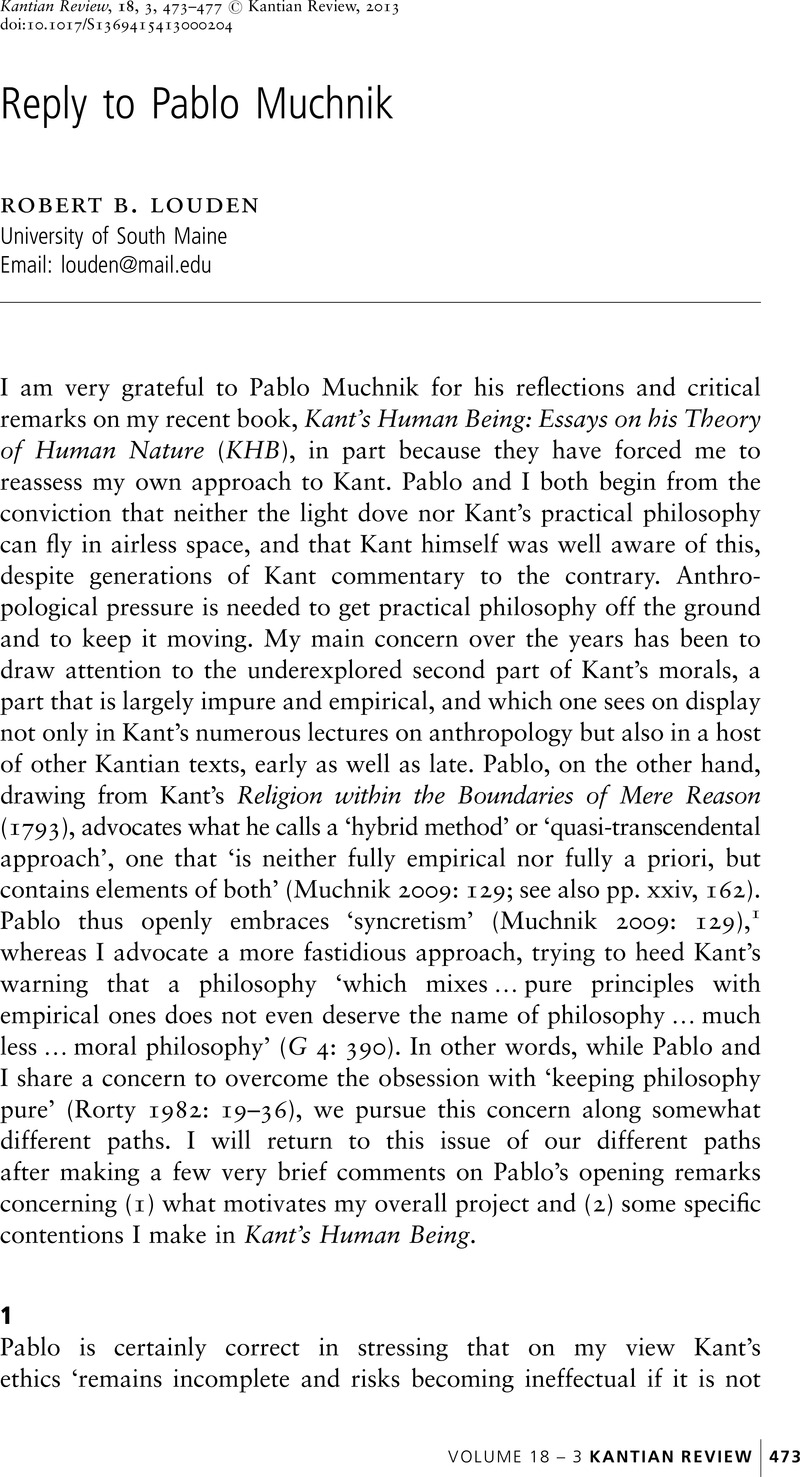No CrossRef data available.
Article contents
Reply to Pablo Muchnik
Published online by Cambridge University Press: 07 October 2013
Abstract
An abstract is not available for this content so a preview has been provided. Please use the Get access link above for information on how to access this content.

- Type
- Critical Exchange
- Information
- Copyright
- Copyright © Kantian Review 2013
References
Foucault, Michel (2008) Introduction to Kant's Anthropology, ed. Roberto Nigro. Los Angeles: Semiotext(e).Google Scholar
Kosch, Michelle (2003) Freedom and Reason in Kant, Schelling, and Kierkegaard. Oxford: Clarendon Press.Google Scholar
Louden, Robert B. (2010) ‘Evil Everywhere: The Ordinariness of Kantian Radical Evil’. In Sharon Anderson-Gold and Pablo Muchnik (eds), Kant's Anatomy of Evil (New York: Cambridge University Press), 93–115.Google Scholar
Louden, Robert B. (2012) ‘“Not a Slow Reform, But a Swift Revolution”: Kant and Basedow on the Need to Transform Education’. In Klas Roth and Chris W. Suprenant (eds), Kant and Education: Interpretations and Commentary (New York: Routledge), 39–54.Google Scholar
Muchnik, Pablo (2009) Kant's Theory of Evil: An Essay on the Dangers of Self-Love and the Aprioricity of History. Lanham, MD: Lexington Books.Google Scholar
Rorty, Richard (1982) ‘Keeping Philosophy Pure: An Essay on Wittgenstein’. In Rorty, Consequences of Pragmatism (Minneapolis: University of Minnesota Press), 19–36.Google Scholar


